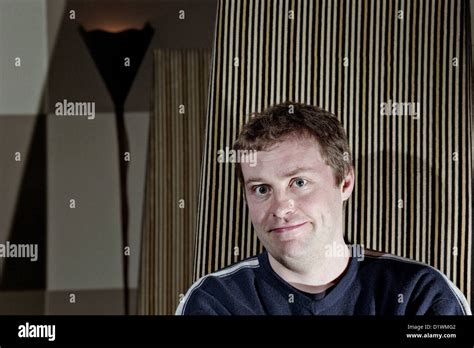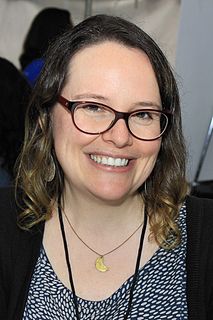A Quote by Carl Sagan
What an astonishing thing a book is. It’s a flat object made from a tree with flexible parts on which are imprinted lots of funny dark squiggles. But one glance at it and you’re inside the mind of another person, maybe somebody dead for thousands of years. ... Books break the shackles of time. A book is proof that humans are capable of working magic.
Related Quotes
A book is made from a tree. It is an assemblage of flat, flexible parts (still called "leaves") imprinted with dark pigmented squiggles. One glance at it and you hear the voice of another person, perhaps someone dead for thousands of years. Across the millennia, the author is speaking, clearly and silently, inside your head, directly to you. Writing is perhaps the greatest of human inventions, binding together people, citizens of distant epochs, who never knew one another. Books break the shackles of time ? proof that humans can work magic.
I believe in books. And when our people [coughing] - our people of Jerusalem, let's say after the Romans destroyed the temple and the city, all we took is a little book, that's all. Not treasures, we had no treasures. They were ransacked, taken away. But the book - the little book - and this book produced more books, thousands, hundreds of thousands of books, and in the book we found our memory, and our attachment to that memory is what kept us alive.
The mind is a vagrant thing ... Thinking is not analogous to a person working in a laboratory who invents something on company time.
Answering criticism that the book for which he won a Pulitzer Prize was written in the years he had been employed at the Smithsonian. He specified that did not write on the premises there, but only at home outside of working hours.
I start a book and I want to make it perfect, want it to turn every color, want it to be the world. Ten pages in, I've already blown it, limited it, made it less, marred it. That's very discouraging. I hate the book at that point. After a while I arrive at an accommodation: Well, it's not the ideal, it's not the perfect object I wanted to make, but maybe?if I go ahead and finish it anyway?I can get it right next time. Maybe I can have another chance.
For me, a lot of Discipline was very personal writing, like writing through and working out being inside this gendered body and also the compulsions of the body, the muting of the mind as driven by the body. My father had died some years ago so he haunts the book too, just floats through it ghost-like. But, the writing of every book is different for me. They are so like living creatures, these books, so I don't know what's carried over into the writing of the next things - except maybe that I'm best when I make my writing practice a routine.
Funny stories on set - there are thousands of them, but they are only funny to the people who were on the movies. You start to have inside jokes and gallows humor. You have all kinds of things you laugh at, but as soon as you tell somebody, the joke falls flat because they don't know the context of it.
The object we call a book is not the real book, but its potential, like a musical score or seed. It exists fully only in the act of being read; and its real home is inside the head of the reader, where the symphony resounds, the seed germinates. A book is a heart that only beats in the chest of another.
The face of the water, in time, became a wonderful book- a book that was a dead language to the uneducated passenger, but which told its mind to me without reserve, delivering its most cherished secrets as clearly as if it uttered them with a voice. And it was not a book to be read once and thrown aside, for it had a new story to tell every day.
































